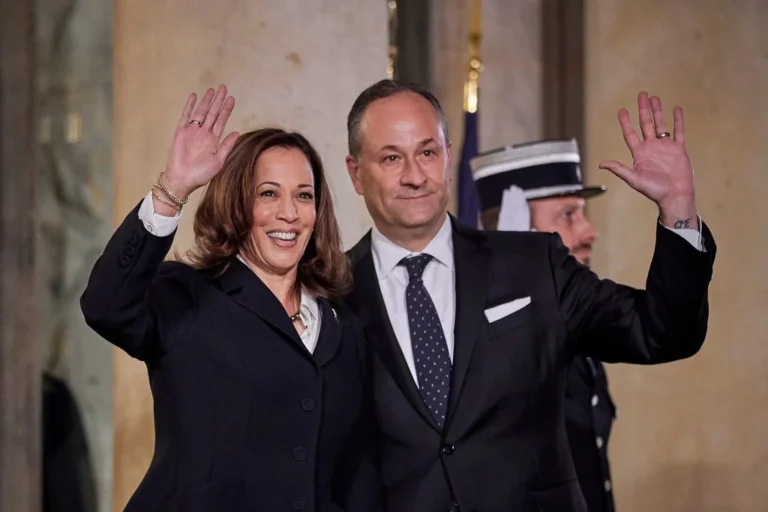Introduction to Kamala Harris and Her Financial Background
Kamala Harris, the first female Vice President of the United States and the first African American and Asian American Vice President, has had a distinguished career that traces back to her early days as a lawyer. Born on October 20, 1964, in Oakland, California, she is the daughter of immigrant parents who inspired her pursuit of education and public service. Harris earned her Bachelor of Arts degree from Howard University, a historically black university, and later obtained her Juris Doctor from the University of California, Hastings College of the Law.
Harris began her legal career at the Alameda County District Attorney’s Office, where she quickly gained recognition for her strong advocacy skills and commitment to justice. Her trajectory took a significant turn when she became the San Francisco District Attorney in 2004, representing a watershed moment in her career that showcased her leadership capabilities. In 2010, she made history once again by becoming California’s Attorney General, where she focused on various issues, including consumer protection and criminal justice reform. These significant roles not only solidified her reputation as a formidable legal mind but also laid the foundation for her entry into politics.
Her political ascent continued with her election to the U.S. Senate in 2017, where she became known for her incisive questioning during high-profile hearings and her commitment to a range of policies, including healthcare and immigration reform. In 2020, her career reached new heights when she was selected as Joe Biden’s running mate during the presidential campaign, ultimately leading to their victory and her historic role as Vice President. Each stage of Harris’s career reflects a blend of dedication, ambition, and advocacy for marginalized communities, factors that have undoubtedly influenced her financial standing over the years. This introduction sets the stage for a more profound understanding of Kamala Harris‘s net worth and the financial implications of her extensive career.
Sources of Income: How Kamala Harris Accumulates Wealth
Kamala Harris, the current Vice President of the United States, has built a diverse portfolio of income sources throughout her career. Her journey toward financial stability commenced when she practiced as an attorney, a role that provided her with a substantial income. After serving as a Deputy District Attorney in San Francisco, Harris gained recognition for her skills in the courtroom, which allowed her to attract high-profile clients and significantly increase her earnings.
Following her initial legal career, Harris was elected as the Attorney General of California in 2010. During her tenure from 2011 to 2017, she earned a considerable salary, further enhancing her net worth. As Attorney General, she focused on various important issues, including consumer protection and criminal justice reform, resulting in a high public profile and subsequent influence in political circles.
Kamala Harris then transitioned to the U.S. Senate, representing California from 2017 to 2021. During this period, her salary continued to contribute to her impressive financial portfolio. In addition to her governmental roles, Harris has successfully leveraged her prominence in the political arena through book deals. Her memoir, “The Truths We Hold,” published in January 2019, added a substantial amount to her wealth and gained her further recognition as an author.
Moreover, speaking engagements have become another significant source of income for Harris. As a well-known political figure, she is frequently invited to speak at events and conferences, which often provides lucrative compensation. Additionally, investments in various ventures further diversify her financial portfolio, allowing her to accumulate wealth over time.
Overall, Kamala Harris’s financial journey encompasses a multitude of income sources, including her legal career, public service salaries, book deals, and speaking engagements, all of which collectively contribute to her net worth.

Current Estimations and Analysis of Kamala Harris’s Net Worth
As of the most recent assessments, Kamala Harris’s net worth is estimated to be around $7 million. This figure encompasses her earnings from her roles as an attorney, U.S. Senator, and now, Vice President of the United States. While net worth calculations can be complicated, involving various assets such as property, investments, and income streams, the consensus across multiple financial reports offers a reasonable understanding of her financial standing.
One notable source suggests that a considerable portion of her wealth derives from her high-profile legal career and public service. Notably, before her political ascent, Harris served as the Attorney General of California, where she earned a significant annual salary. Furthermore, her financial journey is also marked by her best-selling memoir, which contributed to her income portfolio. These income streams illustrate the multifaceted nature of her financial resources, particularly in relation to her current role as a political leader.
However, discrepancies in net worth estimates can arise, primarily due to variances in asset valuation or evolving financial obligations, such as mortgages and investment valuations. Some reports have indicated a broader range for her worth, highlighting the complexities involved in calculating personal finances. Comparatively, when we analyze Harris’s net worth alongside that of her peers, such as other government officials and members of Congress, her financial trajectory positions her within an upper-middle range in relation to her colleagues.
Moreover, the discussion around Harris’s net worth is not without controversy. Critics and supporters alike scrutinize the sources of her wealth, often questioning the implications of a politician’s financial background on their public service. This scrutiny serves as a reminder of the intersection between personal finance and public perception in the realm of political leadership. As such, understanding Kamala Harris’s net worth provides not merely a snapshot of her financial situation but also an insight into the broader fabric of wealth among political figures in the United States.
The Impacts of Kamala Harris’s Wealth on Public Perception and Policy
The financial status of political figures often becomes a focal point in public discourse, and Kamala Harris is no exception. Her impressive net worth has prompted varied reactions that shape her public image and influence perceptions of her policy positions. Wealth can provide a distinct advantage in a political career, but it can also create barriers to relatability with constituents. As one of the highest-ranking officials in the United States, Harris’s financial background raises questions about privilege, accessibility, and representation in governance.
Kamala Harris’s wealth may signal success and competence to some voters, who may view her financial achievements as an indication of her capability as a leader. This perception can enhance her credibility, particularly among those who prioritize experience and stability in their political representatives. However, the same wealth can generate skepticism, particularly from constituents who perceive her as out of touch with the struggles faced by lower-income communities. Critics may question whether her financial status impacts her empathy towards policies that affect the economically disadvantaged.
Moreover, the relationship between wealth and policy positions often reveals the complexities of governance. Politicians with substantial financial resources might advocate for the interests of wealthier constituents, raising issues of representation and fairness. Kamala Harris‘s policy decisions, such as her stances on taxation and social justice, could be scrutinized through the lens of her financial background. This analysis prompts broader discussions about the implications of wealth on governance, emphasizing the need for diversity in representation to ensure a balanced political conversation.
Ultimately, Kamala Harris’s wealth not only informs her public perception but also influences the dynamics of her political actions. As she navigates her role in office, the impact of her financial journey on policy positions and public trust will continue to evolve, highlighting the intricate relationship between wealth and leadership in contemporary politics.


